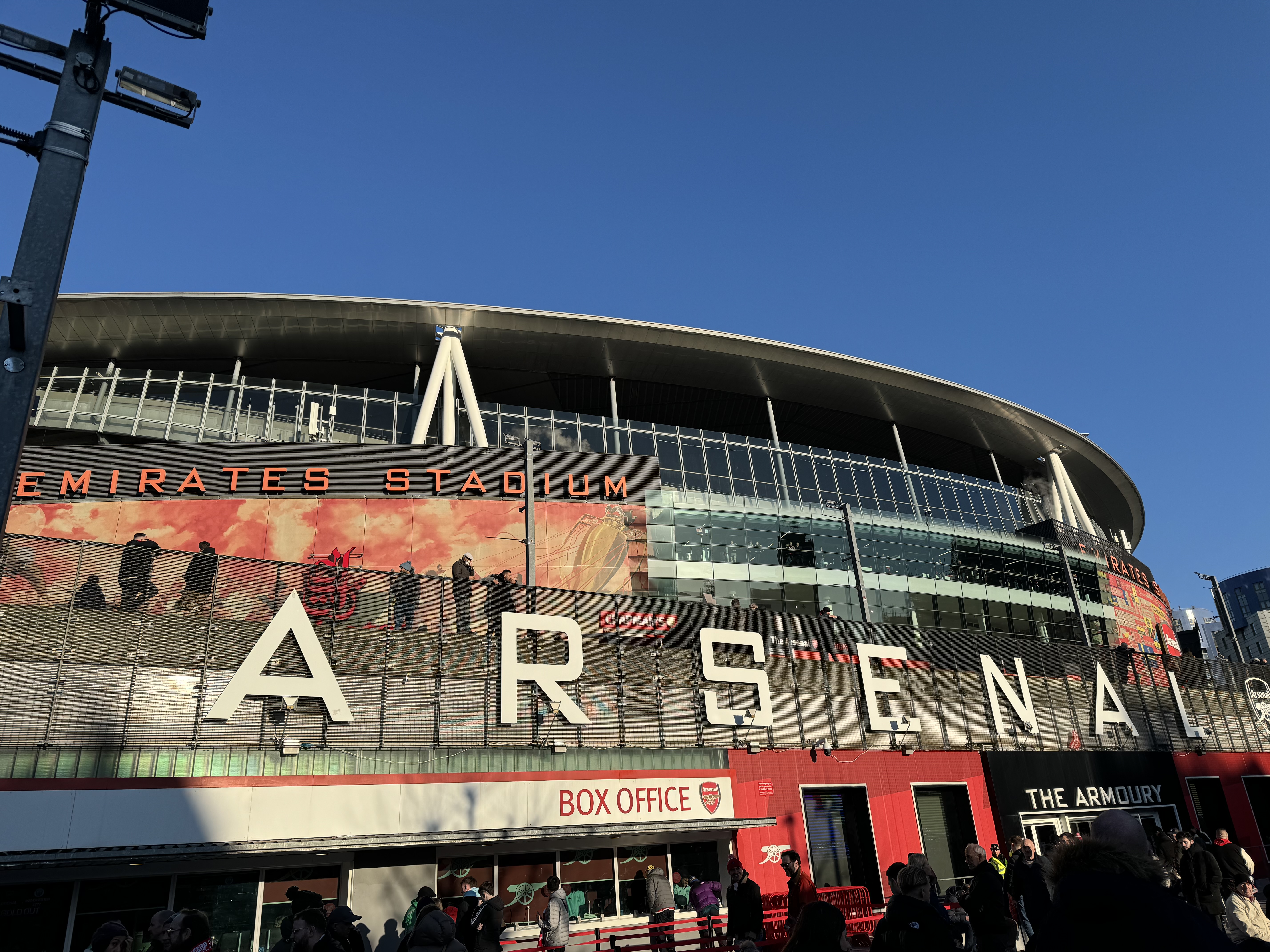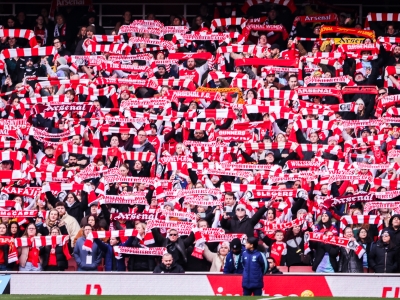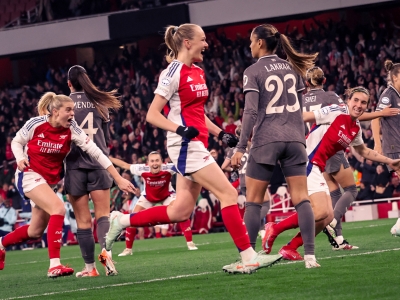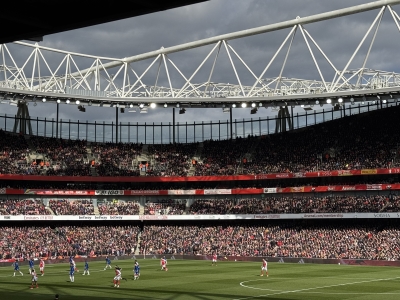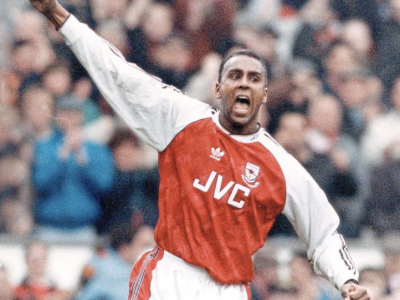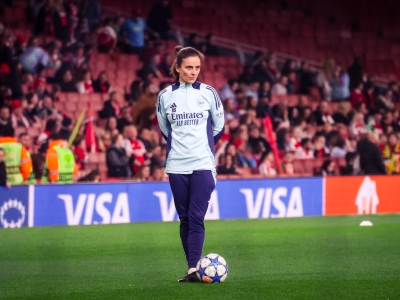Football is full of unpredictability.
From last-minute goals to tactical shifts, every match involves decisions, reactions, and calculated risks.
Arsenal fans know this well—watching their team adapt to changing situations and make crucial choices. Behind the excitement, football has patterns, strategies, and probabilities at play.
This is where game theory comes in. It’s the study of decision-making, where players and teams predict how opponents will respond.
In football, game theory helps guide teams on when to attack, defend, or take risks, just like how Arsenal approaches each match.
Fine Margins, Big Wins: How Arsenal Masters the Details
At the highest level, small details make all the difference. This philosophy, known as marginal gains, is used across sports. Whether it’s perfecting set-piece routines, optimising recovery, or adjusting travel schedules, top clubs leave nothing to chance.
Arsenal’s focus on sports science, data analytics, and opposition analysis ensures they’re always seeking that extra edge. Success, both in football and any competitive field, comes from understanding patterns, minimising mistakes, and maximising opportunities.
A similar mindset is key in online gaming, where split-second decisions, pattern recognition, and calculated risks determine the outcome. Many of the best non GamStop casinos give players the chance to test those skills with thousands of games offering fast payouts, multiple payment methods, and perks like welcome rewards, free bets, cashback, and VIP benefits. These bonuses reward bold strategies and smart decisions in high-pressure situations. Just as a football manager reviews past performances to adjust tactics, players in gaming environments analyse trends and adapt to stay ahead. Small improvements lead to an advantage over time. Arsenal’s rise back to the top shows how careful planning and attention to detail pay off, proving that thinking ahead keeps you a step ahead.
The Importance of Probability in Decision-Making
Football is often seen as a game of skill, but probability plays a massive role in shaping results. A striker taking a shot from outside the box might have a low chance of scoring, while a well-placed cross into the six-yard box significantly increases the odds.
Managers and analysts constantly assess these probabilities—how likely is a goal from a certain position? What’s the success rate of a particular passing combination? Arsenal’s Expected Goals (xG) model helps break this down, showing that while some shots might seem promising, they have a lower statistical chance of going in compared to others.
Game theory comes into play here, as it’s all about understanding how to make the best decisions by predicting how opponents might act in response. It’s about identifying patterns and using that information to inform strategic choices.
For Arsenal, a well-calculated approach to finishing chances and managing possession—considering both their own actions and how opponents will likely respond—helps improve overall outcomes across a season.
Mind Games: Reading Opponents and Staying One Step Ahead
Football isn’t just about talent; it’s about psychology. Players and managers constantly try to predict what the opponent will do next. A defender might anticipate a winger cutting inside based on previous matches, just as a goalkeeper might study penalty takers to understand their habits.
Arsenal’s best performances under Arteta have come when they’ve controlled not just the physical battle but the mental one—forcing opponents into mistakes, cutting off their best passing options, and exploiting weaknesses before they can react.
In February, Arsenal’s 5-1 win over Manchester City showed how pressing high and cutting passing lanes forced City into mistakes, creating quick chances. The best teams thrive by keeping opponents guessing. Arsenal's tactical precision kept City on the back foot, always second-guessing their next move, leading to a commanding performance.
The Art of Tactical Adjustments
Not every game goes as planned. Injuries, red cards, or unexpected goals can shift momentum. The best managers, like Arteta, adjust when needed—whether by changing formations or making impactful substitutions.
Arsenal’s 3-1 victory over Brentford on New Year's Day showcased their adaptability. After conceding early, they increased tempo and exploited Brentford's defense, with goals from Gabriel Jesus, Mikel Merino, and Gabriel Martinelli securing the win. This match highlights the importance of pivoting effectively, setting great teams apart.
Maximising Small Gains: Marginal Gains Theory
At the highest level, small details make the difference. This philosophy, known as marginal gains, has been applied across sports. Whether it’s perfecting set-piece routines, optimising recovery times, or even adjusting travel schedules for peak performance, the top clubs leave nothing to chance.
Arsenal’s focus on sports science, data analytics, and opposition analysis ensures they are always looking for that extra edge. Just as success in any field comes from understanding patterns, minimising mistakes, and maximising opportunities, Arsenal’s climb back to the top has relied on careful planning and attention to detail.
Conclusion
Football may seem unpredictable, but success relies on smart decisions, calculated risks, and understanding the game’s finer details. Arsenal’s resurgence under Arteta comes from knowing when to attack, reading opponents, and making tactical shifts.
For fans, appreciating this deeper play adds another layer to watching Arsenal. Every pass, press, and tactical shift fits into a bigger picture where strategy shapes the outcome. The best teams plan, anticipate, and execute—rising to the top by mastering this balance.

